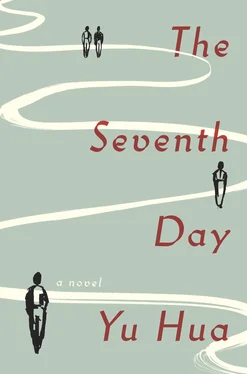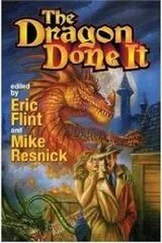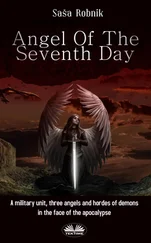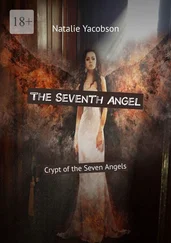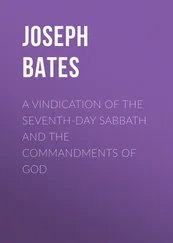I walked toward the warbling song, toward the call of “So, you’re here.”
I entered a copse of trees, and it seemed to me that the nightingale-like song was gliding down from the trees in front of me. As I came closer, I noticed that the tree leaves were getting bigger and bigger, and then I saw a line of tiny skeletal babies settled in the cradles formed by the spreading, swaying leaves, and the babies were rocking back and forth and singing a song that tugged at the heartstrings. I stretched out my fingers and counted them one by one, until I reached twenty-seven. This number made my heart quiver, and my memory at once caught up with that lost world, and I thought of those twenty-seven dead babies labeled “medical refuse” that were washed up on the riverbank.
“So, you’re here.”
I saw a skeleton dressed in bright white clothing sitting in the tall grass between the trees. She stood up slowly, gave a sigh, and said to me, “Son, how did you come to be here so soon?”
I knew who she was. “Mom,” I called softly.
Li Yuezhen walked up to me. Her empty eyes gazed at me and her voice sounded uncertain. “You look to be in your fifties, but you’re only forty-one.”
“You still remember my age,” I said.
“You’re the same age as Hao Xia,” she said.
By this time Hao Xia and Hao Qiangsheng were in America, in that other world, while Li Yuezhen and I were here in this one. When they left, I saw them off at the airport; they were flying to Shanghai and then taking a connecting flight from there. I asked Hao Qiangsheng to let me carry the urn of ashes, so that I could accompany this spiritual mother of mine for a small portion of her final journey.
“I saw you carrying the urn to the airport.” Li Yuezhen shook her head. “But they weren’t my ashes, they were someone else’s.”
Those ashes, I realized, must now be resting under her name, somewhere in America. “Hao Xia told she has already found a resting place for you,” I started to say, “and her dad will join you there in the future.”
I didn’t go on, because I realized now that when Hao Qiangsheng was buried his remains would not be interred with those of Li Yuezhen, but with those of one or more strangers.
Tears streamed from Li Yuezhen’s empty eyes, for this thought had occurred to her too. Tears flowed down her stonelike cheeks and fell onto the blades of grass below. Then her empty eyes lit up with a happier expression, and she raised her head to look at the warbling babies. “I used to have twenty-seven children. Now that you’re here, I’ve got twenty-eight.”
Her fingers, reduced simply to bones, began to stroke the black armband on my left arm. She knew that I was grieving for myself. “My poor boy,” she said.
In my ice-bound heart there appeared a warming glow. One of the infants, overreaching, tumbled down off a leaf and, sobbing pitifully, crawled over Li Yuezhen. She took the infant into her arms and gently rocked him back and forth, then set him back on top of another broad leaf, where he happily rejoined the warbling chorus.
“How did you get here?” Li Yuezhen asked.
I told her about my final moments, and also mentioned how Li Qing had come from so far away to say goodbye.
She gave a sigh. “Li Qing should never have left you.”
Perhaps she was right, I thought. If Li Qing had not left me at that point, we might still be living a peaceful life in that other world and our child would be in primary school — or maybe even middle school.
I recalled the disappearance of Li Yuezhen and the dead babies and how the funeral parlor had claimed that it had already cremated them all, though it was said that their ashes had actually been taken from the urns of other people altogether.
“I know about that,” she said. “People who came after me told me.”
I looked up at the babies singing away on the broad tree leaves. “Did you carry them all here?”
“No, I didn’t carry them,” she said. “I walked in front and they crawled along behind.”
Li Yuezhen said that late that night she did not hear the roar of the subsidence. She had been sleeping heavily, and at one stage she saw a vast chaos in which heaven and earth were inextricably mixed. A gleam of light appeared in the far distance, like a line on the horizon, and then light came rolling in like a tide. Heaven and earth separated, morning and night were uncoupled. Later, in her dreams she felt air whirling around rapidly and shuttling back and forth, and in the final stage of sleep she saw water spreading from the ground and rising inexorably until it was like an ocean.
Then she woke, to find she seemed to be falling vertically off a cliff. She slowly pushed aside the white cloth, the way she might sweep away snow in front of her door. Her feet began to move, taking her out of the morgue that now lay at the bottom of the sinkhole, bathed in a desolate moonlight. Her feet stepped on a broken wall as jagged as scattered dogs’ teeth, and she propelled herself out of the pit.
She walked into a city flooded with light, where pedestrians and cars jostled. Everything was the same as it had always been, but departure into another realm put her beyond the reach of this familiar world.
Out of habit she walked to the building where she used to live, as though returning home, but she could not enter it as she would have been able to before. No matter how she moved her legs, it was impossible to get closer. Three days after her departure from the human world, she saw a female figure appear briefly at a sixth-floor window and her heart skipped a beat, for it was Hao Xia — her daughter had returned.
In the two days and nights that followed, she never ceased in her efforts to approach the building, but she just seemed to move farther away. Hao Qiangsheng never appeared in that window and neither did I, and Hao Xia appeared just that once. She saw people moving tables and chairs and chests out of the building, then coffee tables and sofas and beds, until she knew that the furniture she had lived with for decades had been sold off and the apartment itself too, for her husband and daughter were about to fly to America.
Finally, one afternoon, she saw all three of us. Hao Qiangsheng, holding an urn in both hands, emerged from the building; he was supported by Hao Xia, who held in her right hand a large duffel bag, while I followed behind carrying a large suitcase in each hand. The three of us stood by the side of the road and a taxi pulled over. The driver and I together put the bag and suitcases into the trunk of the car. She saw me say a few words to Hao Qiangsheng, and he passed the urn to me. Holding it carefully in both hands, I sat down in the passenger seat, while Hao Xia and her father sat in the back. The taxi drove off.
She knew that this was a final parting, for her husband and daughter were leaving for far-off America. Tears came to her eyes and she dashed forward to deliver a greeting, but running simply put more distance between her and us. She came to a halt and watched as the the taxi disappeared in the flow of traffic.
She started sobbing then, and after much grieving she heard behind her a murmur, a murmur a bit like a sob, and when she turned around she saw the twenty-seven babies crawling along the ground in a line. At first they appeared to be just as upset as she was, but when her crying stopped, their susurrant sobs ceased too. She had not realized that they’d followed her out of the sinkhole and crawled all the way here. She gazed at the city that was gradually fading into the distance, then looked back at the twenty-seven babies, and realized what she had lost and what she had gained.
“Let’s go,” she said softly to the babies.
Li Yuezhen, dressed in white, walked forward slowly and the twenty-seven babies crawled after her all in a line. The sunlight was a grubby yellow as they threaded their way through the noisy city and entered a quiet space where they were greeted by silvery moonlight. They penetrated deeper and deeper into the silence.
Читать дальше
